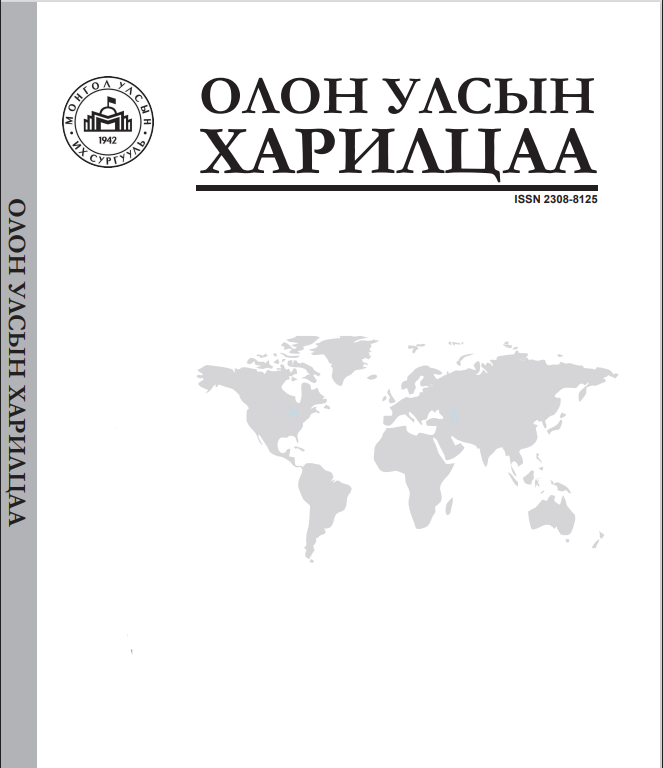Япон дахь Солонгос иргэдийг Умард Солонгос руу илгээх асуудлаарх АНУ-ын байр суурь
Main Article Content
Abstract
This paper focuses on the U.S`s stance on repatriation of the Koreans
in Japan to North Korea, as a major actor in this issue, based on differences
in policies and positions taken by U.S. State Department and U.S .Embassy in
(which?) Korea. The U.S stance on this issue was different from the beginning
of the issue and when it was resolved. At the beginning of the 1959, the U.S.
State Department has taken a non-intervention stance, showing a cautious
attitude toward Japan, within the range of its Japan-centered East Asia policy.
Regarding South Korea, they were taken a critical stance on Korea`s opposition
to the repatriation Koreans to North Korea. Totally different attitude toward
Japan and Korea has prompted more Korean opposition to the repatriation issue
and strained ties between the U.S and South Korea. Unlike the stance of U.S.
State Department, U.S. Embassy in (Which?) Korea understood the necessity
for U.S. active participation in this matter and was in a position to support
the requests and demands of the country of residence. By the time Japan and
North Korea pushed for repatriation project, the U.S had changed its stance and
belatedly participated in, but did not make any progress. Ultimately, this issue
was determined by U.S role recognition and role assignment within the range of
U.S. East Asian policy in the Cold War system.

